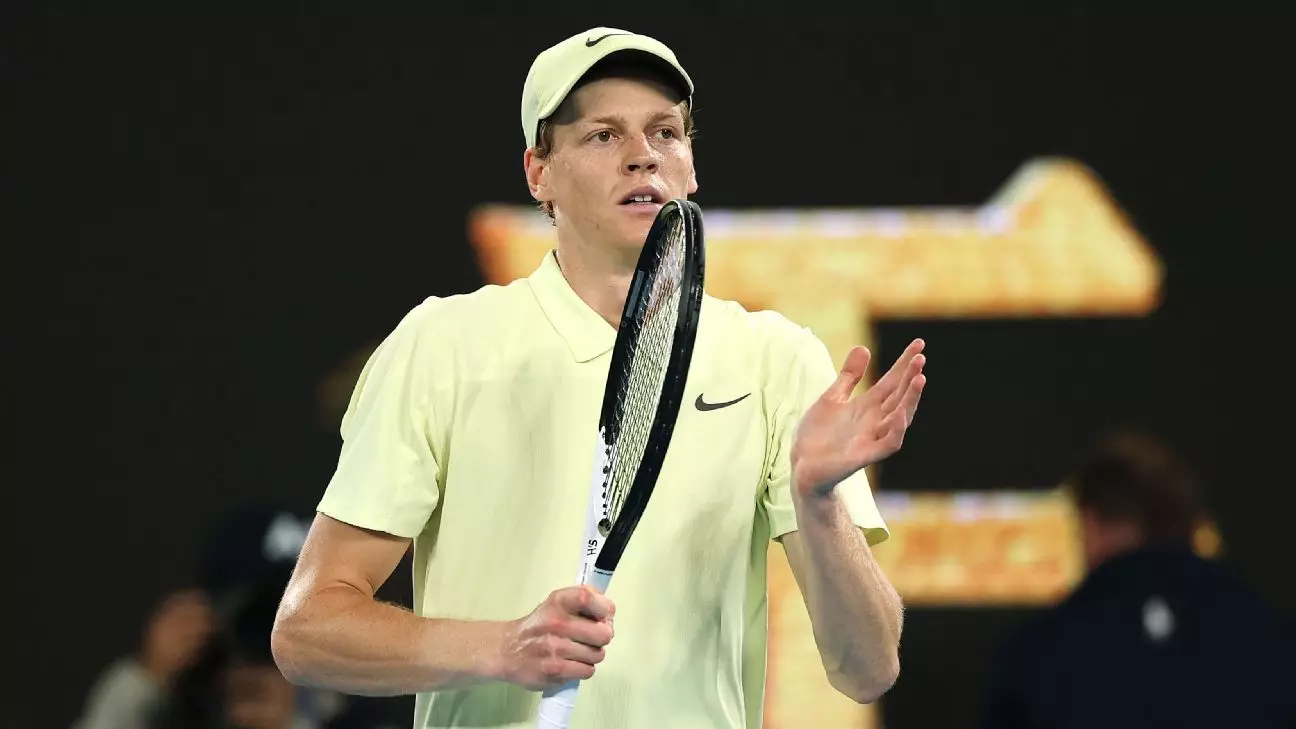Jannik Sinner, the rising star in men’s tennis, has found himself in a precarious situation after being sidelined due to a suspension linked to doping violations. Recently, it was announced that Sinner would no longer participate in the upcoming MGM Rewards Slam exhibition event in Las Vegas next month, which has raised significant discussions within the tennis community. The Italian player, who was once the spotlight of this prestigious event, has been replaced by Casper Ruud, a notable competitor on the ATP Tour. This change is a stark reminder of the consequences athletes face when they fail to adhere to doping regulations, and the gravity of Sinner’s situation serves as a cautionary tale to other players.
Sinner accepted a three-month ban as part of a settlement with the World Anti-Doping Agency (WADA) concerning two positive tests for an anabolic steroid. The controversy surrounding his case stems from an alleged accidental contamination involving a topical cream purchased by a former team member. While it is not uncommon for athletes to face scrutiny over doping allegations, Sinner’s case has been particularly notable due to the complexities involving unintentional exposure. While many supporters argue that Sinner deserves leniency, the decision was made to ensure the integrity of the sport, reflecting the stringent measures in place to combat doping in competitive athletics.
As Sinner steps back from competition, the landscape of the Las Vegas exhibition has shifted dramatically. The event, scheduled for March 2, will now feature other top-tier players such as Alexander Zverev, Taylor Fritz, and Tommy Paul alongside Ruud. These players, while accomplished in their own rights, are competing against a backdrop of heightened expectations now that Sinner’s absence creates a sense of opportunity for them. Notably, Taylor Fritz faces a unique dynamic; he lost to Sinner in the last US Open final, making his performance in this exhibition a potential reclaiming of spotlight in lieu of Sinner’s career-high moments.
One of the more intriguing aspects of Sinner’s ban is its timing. Scheduled to end just before the Rome Masters, his suspension avoids potential conflicts with the Grand Slam tournaments, most importantly the French Open slated to begin soon thereafter. This has prompted discussions among fans and commentators alike regarding how Sinner may return post-suspension. Given that he has already clinched three major championships in recent history, including two Australian Opens, the expectations will be high for his return to form on the court.
Sinner’s experience shines a light on a broader issue in professional sports: maintaining integrity while promoting fairness among competitors. As the conversation around doping intensifies, it brings forth the essential question of personal responsibility within the ecosystem of athletics. Athletes can unwittingly become involved in disreputable situations, whether through negligence or misplaced trust in their support teams. Therefore, as Sinner navigates this challenging period, his story may influence upcoming discussions on policies and reforms aimed at refining doping regulations and ensuring that the integrity of sports continues to be upheld.
While Sinner steps away from the limelight due to unfortunate circumstances, the aftermath of his suspension will surely resonate within the world of tennis, stirring discourse on ethics and the rules governing professional sports.


Napsat komentář